NEWS
24.11.2022
Is Frieza Actually a Great Leader? We Asked an Expert on Human Resources and Organizations to Find Out!
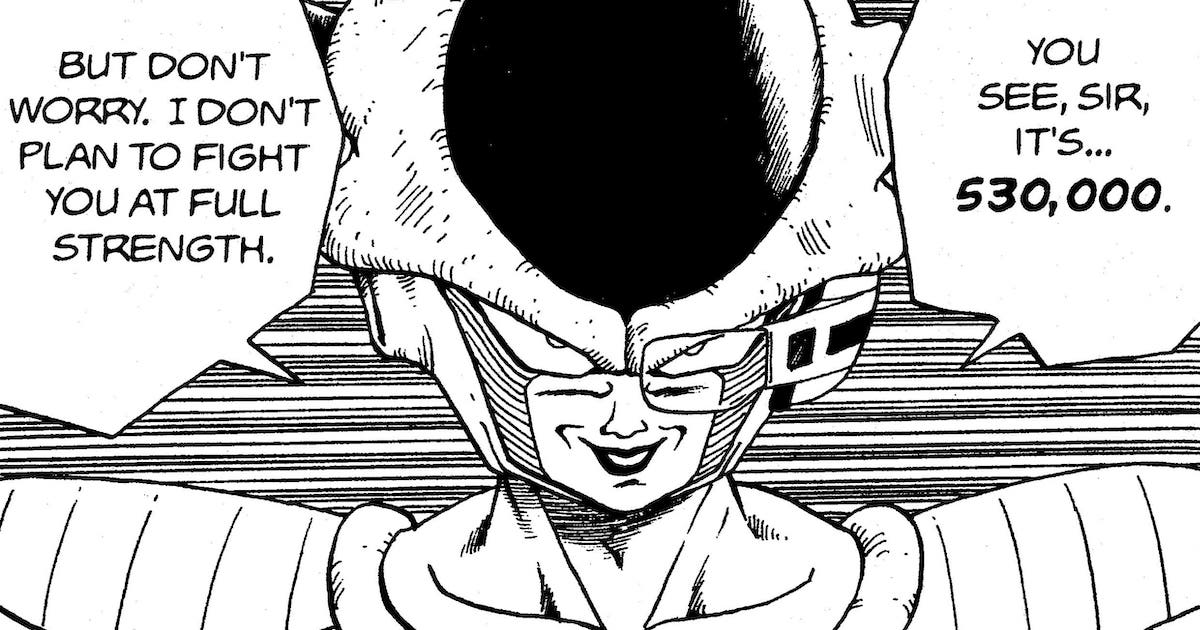
Frieza is the self-proclaimed emperor of the universe and possesses an enormous Power Level to wield as well as the Frieza Force, the galaxy's most powerful military force, at his fingertips.
Frieza is more than just his prestigious title, however; he actively takes command of his troops on the battlefield and seeks to recruit capable talent to his forces, even those who initially oppose him! He also has a refined manner of speaking, making sure to show courtesy to everyone he communicates with, including addressing those who work under him with respect. As a result, there are some who believe that Frieza is an "ideal boss".
How do Frieza's leadership skills hold up in the eyes of a researcher of human resources and organizations? We asked Jun Nakahara, professor at the Rikkyo University College of Business, about what faults he could find in Frieza's leadership abilities based on his way of speaking and the actions he took on Planet Namek.
*The interview was conducted remotely.
Profile

Jun Nakahara: Professor at Rikkyo University College of Business. Currently serving as chief examiner of Rikkyo University Graduate School's Leadership Development Graduate Course and vice head of Rikkyo University College of Business's Leadership Research Institute. Specializes in human resources development and organizational development. Researches human resources development and organizational development at businesses and organizations under the theme of "turning adult learning into science". Author of "Workplace Learning" (University of Tokyo Press), "Introduction to Training and Development", "Growth Strategies For New Managers", "Introduction On Training In Part-Time Jobs", and more.
How Frieza Uses Polite and Logical Explanations to Mobilize His Subordinates
—Frieza uses quick and clear orders when mobilizing his subordinates. In the event one of them expresses any doubts, he lays out the reasons for his orders politely. Under ordinary circumstances, people would feel that these qualities make him well-suited to be a leader, but what do you think?
Nakahara: There are three things that are vital in order to get people to do what you want: give clear orders, remain consistent, and explain yourself logically. I would say Frieza fulfills these requirements to a T.
Relaying your orders concisely is also important. That doesn't mean trying to relay everything in one sentence, but rather make each order short and to the point. That makes it easy to get even inexperienced subordinates to fall in line.
.jpg?_=1771156980)
People in management positions in Japan actually have a lot of trouble doing this. I often interact with people in leadership positions for my work, and a lot of them talk at length without really getting to the point (laughs).
—If a leader's instructions aren't clear, that can cause miscommunication, and subordinates will be left to draw their own conclusions, resulting in a lot of unnecessary labor. Is that right?
Nakahara: It is. And it's even more important now with the adoption of telework due to the coronavirus pandemic. There's a huge need for managers who are adept at putting their thoughts into words. There's also a lot more communication through programs such as Slack, so superiors who can't convey themselves in logical and simple language are going to have a tough time.
When you're all in the same office, workers may have been able to power through and complete a task given to them even if the explanation was a bit lacking, especially since there's a unique sense of pressure people feel when they're face-to-face with a manager who ends their explanation with, "All right, I'm counting on you".
However, that doesn't apply when done online. In actuality, some managers may have depended on only using charisma or utilizing workplace dynamics up to this point, so if they continue to neglect explaining things logically or they aren't good at communicating through writing, they'll find themselves struggling with managing others online.
—Speaking of the way people communicate, Frieza is well-known for his politeness when speaking to people who work under him and even his enemies. I can't help but feel like this sense of calmness that he exudes makes him come across as a weak leader.
Nakahara: By being polite with his subordinates, Frieza creates an even level between himself as a leader and his members in order to establish a relationship with them. I feel like he takes a bottom-up management approach in order to encourage each of his followers to perform spontaneously. By using politeness with everyone he encounters, Frieza avoids creating a power gap.
Leadership is all about setting the size of the goal and then mobilizing people so they can achieve it. The methods one uses to achieve this varies from person to person. However, young people these days aren't as familiar with the top-down system. In the past, leaders would tell their followers to keep quiet and fall in line behind them, but those days are over. People are simply too busy now to constantly follow the leader.
Thus, you could say Frieza's stance on leadership is keeping with the times. Whether he's actually conscious of that or not is another matter entirely.
Frieza's Use of "Positive Feedback" to Motivate His Subordinates
—I'll always remember how Frieza commended those under him for their accomplishments, like the praise he gave Captain Ginyu for finding all the Dragon Balls.
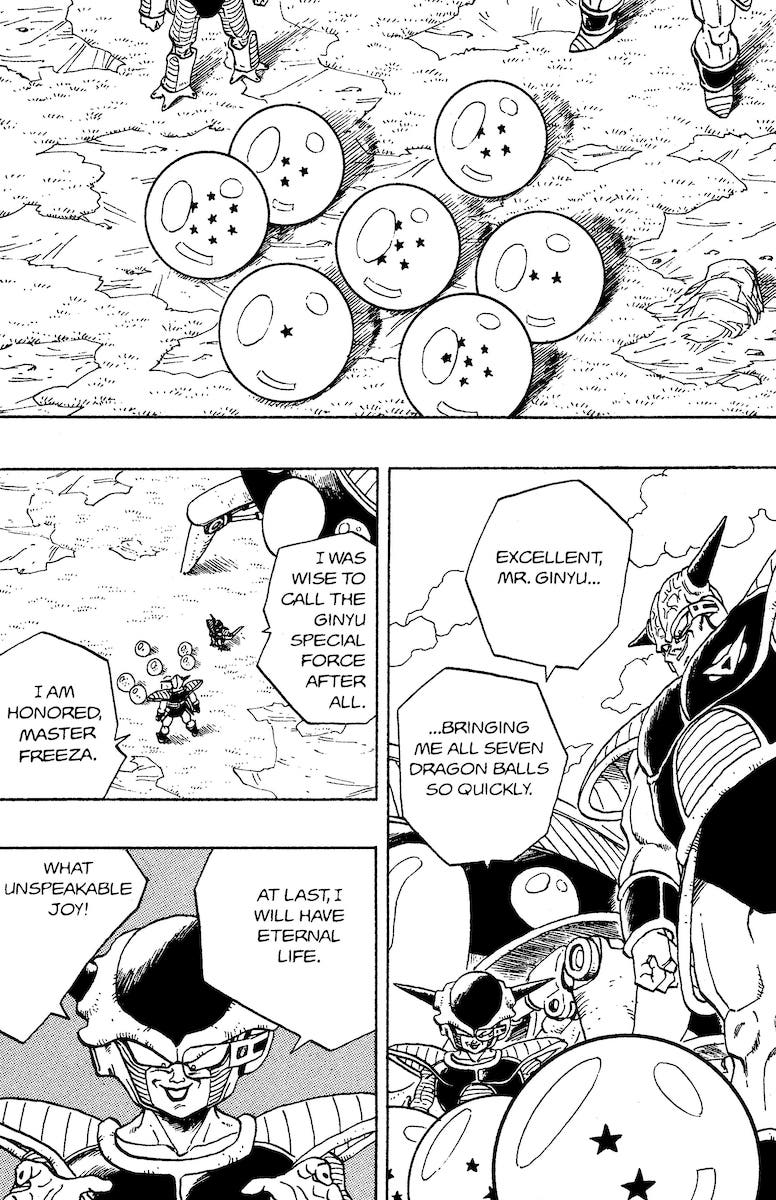
He made sure to specify what he was happy with (in this case, gathering all the Dragon Balls), followed by generous words of gratitude. Do you feel that being a motivator is the sign of an effective leader?
Nakahara: This is what's known as "positive feedback". Frieza's way of complimenting others follows the SBI model, where the feedback you provide is clearly conveyed by incorporating the following: Situation (lay out the circumstances that you're providing feedback on), Behavior (what specific actions are you providing feedback on), and Impact (explaining the positive impact the individual's behavior had).
This is something that Japanese managers have a hard time with, to the point that many young people say they've never been complimented once after joining the company they work for. From a manager's position, employees doing what's asked of them is a given, but people have a hard time keeping up with that sort of thinking.
In leadership research, there's the LMX (Leadership-Member Exchange) theory, which posits that leadership comes from the relationship between leaders and members. If there's a high quality of LMX, it will bear good results. In order to raise the quality of LMX-type leadership, it's important to have raises in pay and promotions. And of course, giving praise is a vital component too.
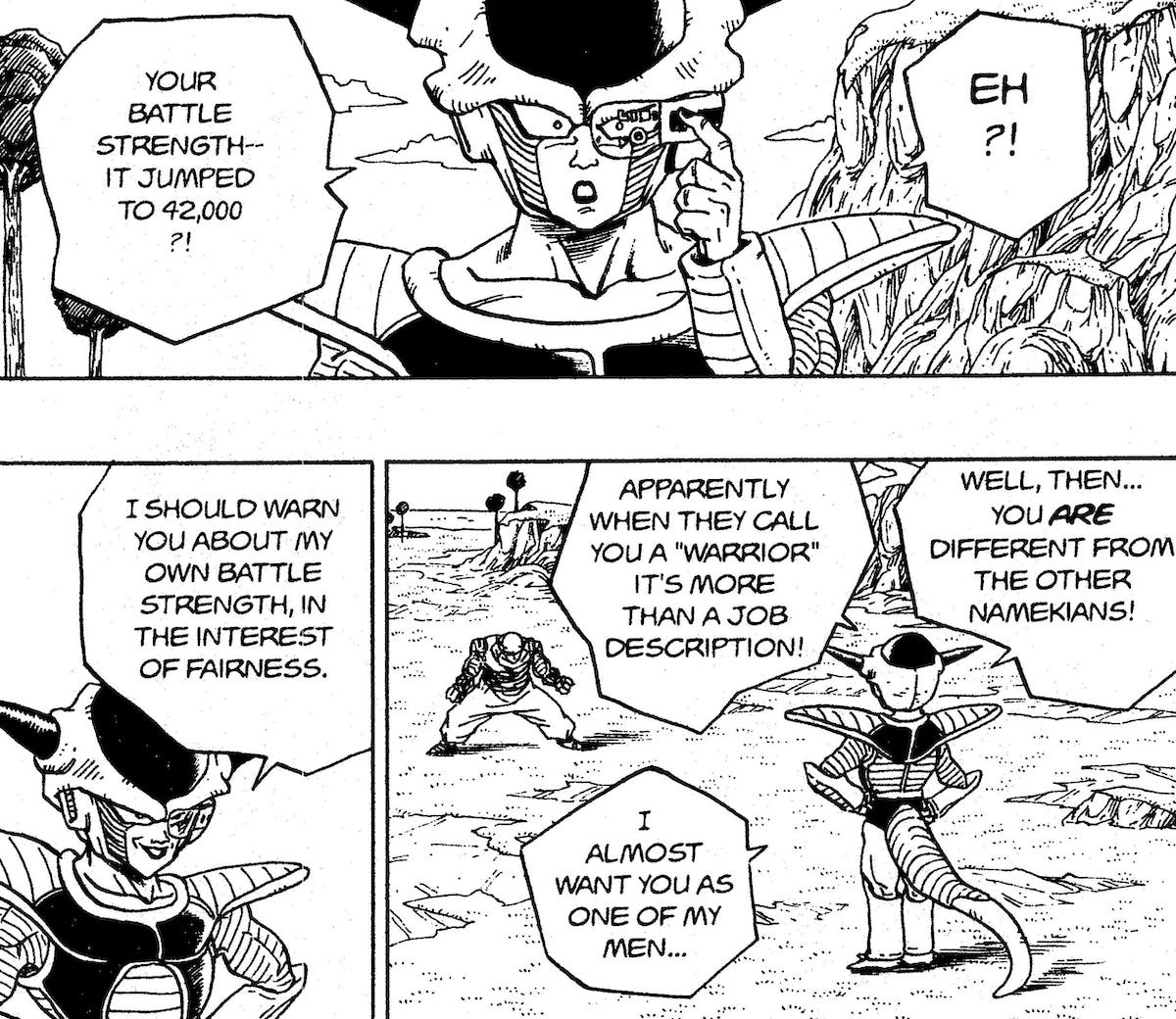
▲ Despite the fact that Frieza is being confronted by an adversary in the above scene, he graciously acknowledges the power his opponent possesses. Another characteristic of leadership is to always be head-hunting for new talent.
Nakahara: If a leader makes sure to laud a subordinate's accomplishments, that will make criticisms, reprimands, and other types of negative feedback easier to convey. In other words, positive feedback creates a surplus of trust that is needed for negative feedback.
It's difficult to accept negative feedback at face value from a leader who never provides positive feedback and constantly admonishes those below them. However, if a leader regularly raises the quality of their LMX, they'll earn their employees' trust, which will change the way those employees react to feedback.
—That reminds me, even when Frieza reprimands a subordinate, he doesn't raise his voice. Like when Zarbon defeated Vegeta and left him for dead without confirming where he had hidden the Dragon Ball he stole. Frieza confronted him calmly and Zarbon immediately understood his mistake.
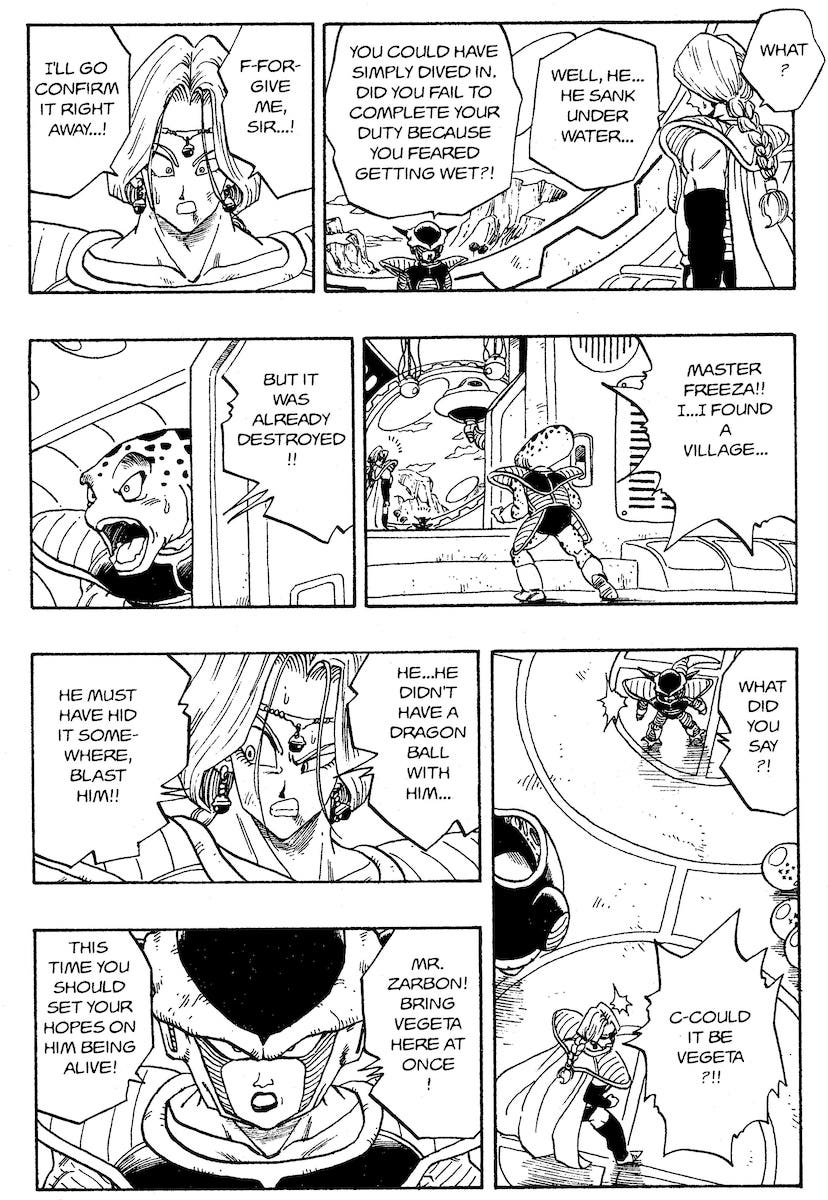
Nakahara: When reprimanding an employee, it's important not to make them feel threatened. If an employee is yelled at and feels threatened, their performance will suffer, which will end up causing the entire team's objective to be harder to reach. Thus, it's a good idea for managers to approach the employee with a calm tone of voice and clearly explain what they did wrong.
Also, immediately after reprimanding Zarbon, he wasted no time in giving him new orders. It's also very important for leaders to give subordinates an opportunity to recover from their mistake and get back on track.
How Frieza Manages Subordinates: Utilizing Advice from the "God of Management"
—I think Frieza takes an "in-person" approach to management. When it comes to the struggles seen in Dragon Ball, Frieza is always on the front lines giving orders and will even take direct action against his enemies when the need arises. When it comes to the heads of evil organizations, we tend to think of them as giving orders from the shadows, but when it comes to being a leader, it's important to be present on-site, isn't it?
Nakahara: Indeed, that's the general consensus. There are countless examples of people in leadership positions who wind up failing because they push projects forward while engaging in impractical armchair theories or only relying on data and never actually bothering to understand the actual working environment.
However, one of the fundamentals of leadership is to have other people performing work for you—in other words, entrusting tasks to others. Kōnosuke Matsushita, also known as the "God of Management", used to say, "Entrust, but keep an eye on it". One of the duties of a leader is to find the right balance of how much of a task to entrust to those who work below them and when to pick up the slack themselves.
However, most leaders out there fall into one of two camps: "Set and forget" or "Going it alone". By that I mean they either entrust everything to their employees and leave them to their own devices without checking in, or they don't trust their employees at all and just take on everything themselves.
—Neither type sounds like a good leader.
Nakahara: Not at all. That's why a good leader needs to be able to observe their subordinates regularly and effectively and ascertain their personalities and strengths and pay attention to how they work. On top of that, they need to accurately discern what parts of a task to entrust and which parts they should intervene with. I genuinely feel sorry for anyone who has to work under someone who doesn't have those powers of observation.
In that regard, Frieza's balance of what to entrust and what not to entrust is exquisite.
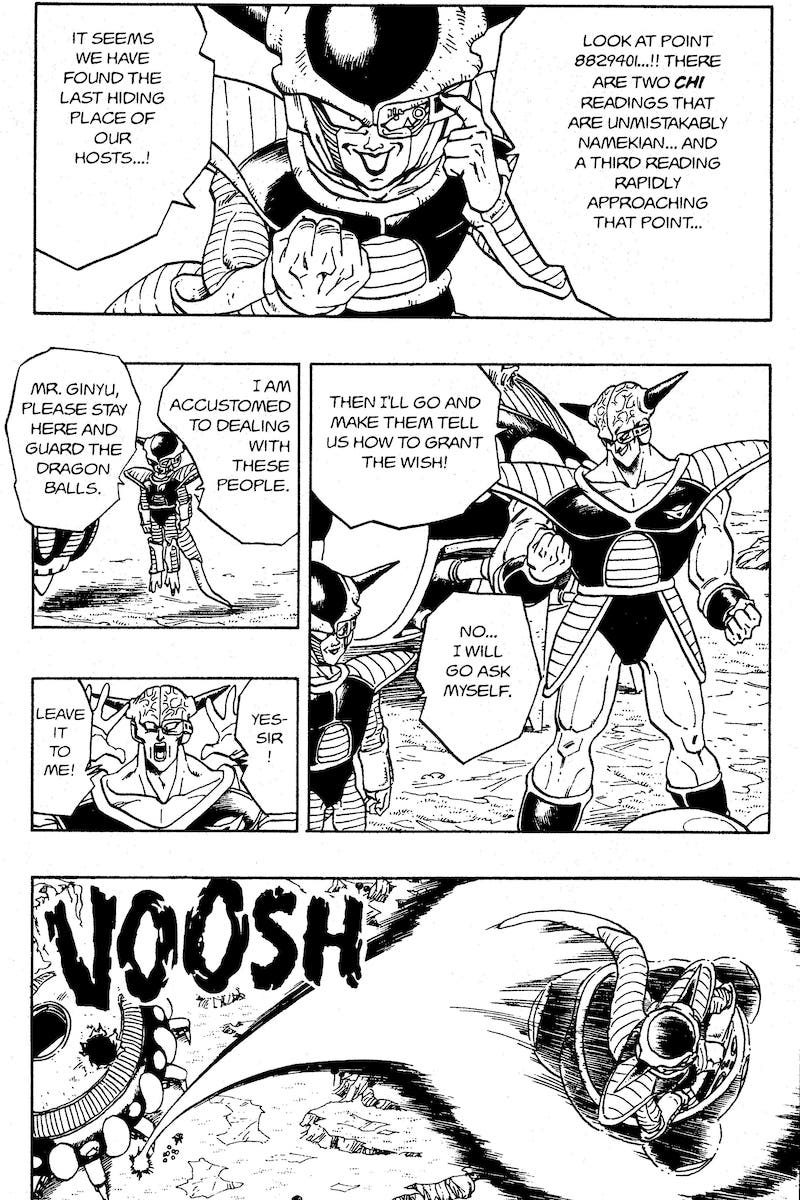
▲ In the above panel, we see an example of Frieza taking action himself when needed rather than leaving everything to his subordinates.
Is There No Sense of Safety in the Frieza Force?
—So far you've told us the areas in which Frieza excels at management, but which one would you say is the most important for the world we live in?
Nakahara: They're all important, but I would highlight his ability to explain things clearly. Getting younger employees to work requires thorough explanations. Both men and women in the workforce want to avoid failure or doing things in an inefficient, roundabout way, so they want to get a clear idea of the objective and overall picture. If you're not able to explain things logically in a way that will put them at ease, the members of your team won't be able to feel motivated.
When it comes to teams that primarily work remotely, it's vital to use words that help make up the physical distance between people. Managers who are under a lot of stress due to the coronavirus pandemic probably wish they could just wave a magic wand, but nothing is ever that simple. The only solution is to politely explain things in a way that's easy to understand in order to bring about a mutual understanding. The old ways of saying, "Just shut up and do it!" won't work anymore.
—Since Frieza is the most powerful being in the universe, you'd expect him to use the "shut up and do it" approach, but he always makes sure to open a line of communication with his subordinates before sending them off to work. Would it be fair to call Frieza an "ideal leader"?
Nakahara: If we look at how Frieza talks and behaves on a purely superficial level, you could certainly call him a "great leader".
However, since the Frieza Force is an evil military organization and Frieza himself is an evil dictator deep down, he's basically ruling his underlings through fear and intimidation, right?
—That's true. Anyone who doesn't listen and follow what he says will find themselves dead.
Nakahara: If you boil it down, Frieza's management style is Machiavellian at its core. He'll do anything and everything to achieve his goals. I believe his words, actions and behavior all point to someone who is narcissistic and a psychopath. In psychology, someone with Machiavellian, narcissistic, and psychopathic traits has a personality that's known as a "dark triad": someone who delights in the pain and suffering of others. Needless to say, this is not something that should be encouraged or aspired to in any way.
What's troubling is that this type of destructive leadership is often effective in the short term. When subordinates are fearful, they'll follow even the most wicked leaders. That said, when it comes to the mid- and long-term, I doubt many people can last very long at that sort of organization.
In order for a team's productivity to increase, subordinates need to feel a sense of safety to say what's on their mind, but if you're being led by someone who will kill you should you step out of line, there's no sense of safety there at all.
—Even so, there are a lot of people out there who find Frieza appealing as a leader.
Nakahara: The fact that Frieza is called an ideal leader might actually indicate that the world is being overrun by awful leaders. People are basically pointing out how sick they are of being led by leaders who don't give clear instructions or explain themselves logically and speak in an aggressive, domineering manner while knowing nothing of the ground-level workplace.
Thus, even though he's on the dark side, the way Frieza values composure and logic makes him stand out. However, true leaders don't let themselves succumb to the dark side.
Interviewer/writer: Noriyuki Enami (Yajirobe)
This site includes machine-translated texts. Please be aware that you might find some unusual expressions that are difficult to understand.
Post
Confirm Post
Post the above comment?
Reply
Confirm Reply
Post the above comment?
Are you sure you want to delete this comment?
Report successful
Post Unsuccessful
This user will be muted.
You will be unable to see comments from muted users in the comments area.
*To unmute users, navigate to the "Comments" area on MY PAGE.
Reply
Confirm Reply
Post the above comment?
Edit
Post


Post
Confirm Post
Post the above comment?
Edit
Post